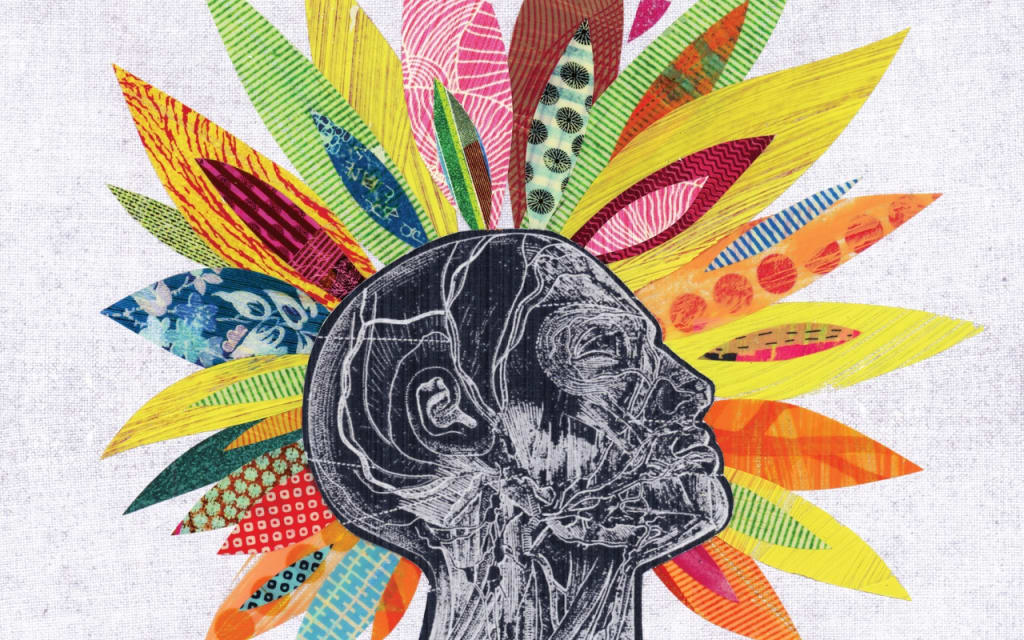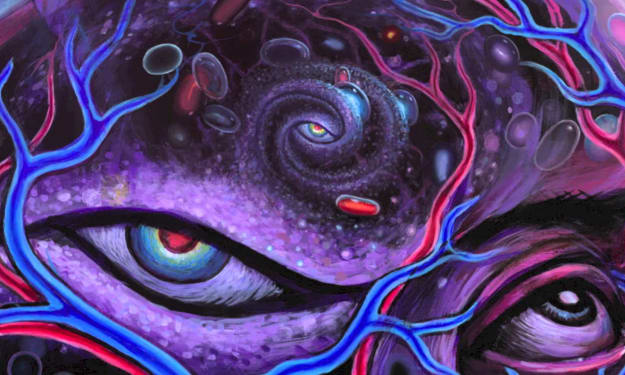
Self Care
Self care has begun to become a popular topic. However, there is no clear definition of self care, since it varies in many ways among different situations and individual groups of people. Historically, substance use does not come up when one speaks about self care, unless to promote abstinent behaviors. On the other hand, reducing the harms associated with substance use has become a growing conversation, changing the ways we respond to drug addiction and the vast amount of people affected by it. Similar to how, as a society, we have evolved our views on sexual health. Making condom use and birth control a widely accepted phenomenon as opposed to focusing on solely abstinence based practices. It is just as important to have the conversation about self care when it comes to substance, as it is about sexual health. No one can prevent people from having sex, just as no one can prevent people from using drugs. Its in our human nature, whether this is a widely accepted view or not.
Why is self care so important when it comes to substance use?
When it comes to drug use, self care extends beyond basic harm reduction principles. One has to build a relationship with themselves and their use, that supports both their physical and mental well being in a way that works for them. Its not always easy, and takes a lot of self work, but it can impact ones overall life experiences in a positive way.
What do you mean by "Psychoactive Substances"?
Psychoactive Substance refers to any drug that changes brain function in a way that alters ones perception, mood, consciousness, or behaviors. This can range from a wide variety of prescription medications, to recreational drugs such as those classified as psychedelics, or drugs that carry more stigma like heroin or crystal meth. Not to mention, those that some often forget fall under this category such as, alcohol, nicotine, and caffeine.
Every substance is different, but self care practices apply to every substance just as they apply to everyday life. The following paragraphs are going to touch on self care practices and how they can apply to your own substance use (no matter the substance or your relationship with it).
What is your relationship with substances?
It's important to identify what your relationship is with the substance you use or want to use. In a broader sense, it would be ideal to start by examining your relationship with psychoactive substances as a whole. What is your stance on the legality or decriminalization of each substance? What is your opinion of those who use these substances? Most of you will find that you hold some sort of bias. Whether its in favor of the substance of your choice, or in disfavor of those who use substances you have yet to come in contact with (or perhaps of those you yourself have struggled with in the past). Ask yourself where your perceptions stem from. Why you carry those beliefs and how it effects your overall worldview. The next step would be to do research. Not research in favor of your beliefs but just the opposite. Find information on the opposite of your perspective. The point of doing this isn't to "prove" your beliefs to be right or wrong, but merely to open yourself up to different points of views other than your own. This will make it easier to examine your current relationship with your substance of choice, and might even change the dynamics of this relationship.
Questions to Ask Yourself When Establishing Your Relationship
Here is a list of basic questions to ask yourself with some common examples (be specific and detailed when answering them yourself). Its most beneficial to ask questions you deem fit for your situation or lifestyle. Remember that these are only examples. No one else can dictate for you whats best to ask yourself.
- What substance(s) do I use? (Which one do I want to focus on?)
- How often do I use? (Once a month, once a week , every day, on weekends, twice a day etc.)
- When do I use more often? (When alone vs with friends, when stressed vs when relaxing etc.)
- Why do I use when I do? (Stress relief, socializing, medicinal, energy, spiritual etc.)
- How does my use effect my spiritual, physical, & mental, well being? (could be positive or negative)
- What can I do to reduce or amplify these effects? (reduce negative effects, increase positive ones)
Questions to ask before using...
- What do I intend to get out of this experience? (self healing, increased mental energy, increased self awareness etc.)
- What do I intend to do after using? (go to work, get some writing done, listen to music etc.)
- What happened last time I used in this situation? Was it a positive or negative outcome? (felt more productive, had a profound experience, made a beautiful piece of art, had a hard time focusing, got a warning from my manager, I hurt myself or another etc.)
- What could of contributed to this outcome? (I spent a lot of time reflecting, I did some breathing exercises, I was in a good mood, my dose was smaller than usual, my dose was higher than usual, I used in combination with another substance, I was in a bad mood etc.)
- How can I make sure the outcome aligns with my intention? What worked for me last time, what didn't? (take a smaller dose than last time, prefer to use with friends, prefer to use alone, ensure in a good mood, etc.)
Question to ask after using...
- Did the experience match my intentions? (What contributed?)
- What could have been different? (positive or negative)
- What was different from last time? (positive and negative)
- What do I want to do differently or similarly next time I use?
Set & Setting
Within the psychedelic community, "set & setting" is one of the most common pieces of advice given to individuals seeking self-care/harm reduction tips. Especially to those new to taking a psychedelic substance. I believe, however that being mindful of one's set and setting can be beneficial to anyone who uses, regardless of the substance or that individuals "level of experience". So what does set & setting refer too? Well, it extends beyond simply having a buddy to watch over you during your experience. Set, refers to one's mental and emotional state going into the experience, while setting refers to one's physical and social environment. Why these things are important to consider during psychedelic experiences, is because these factors can have a major impact on whether or not someone has a "good" or "bad" trip. Unlike some other substances, psychedelic effect ones emotional and mental states in unpredictable ways. With other drugs, one can have a sense of what's to come. For example, stimulants are known to make one more social and energized, while other drugs are known to put one into a relaxed state. On the other hand, this doesn't mean that ones state of being or environment should not be considered while using other substances. For example, drinking alcohol after a break up is more likely to create unintended emotional distress, as opposed to the happy go lucky drunk one is seeking.
Some things to consider before using:
- What was your day like? (Did anything happen that was outside of the norm? Were you generally in a good mood? Or more anxious than usual?)
- What are you feeling right now?
- Do something that relaxes you (light some incense, meditate, engage in your favorite past time, take a walk in nature etc.)
- Are you using alone? (Do you prefer to be alone? Does someone know you're using that can check up on you, even if its just a text?)
- Are you using with other people? (How well do you know these people? Are you comfortable sharing personal experiences with them? Would you feel comfortable asking them for help if its needed?)
- What substance are you taking? (certain considerations are influenced by different classes of substances, such as overdose precautions and drug interactions)
Intention & Integration
Integration and intentions, like set and setting, are also often spoken of within the psychedelic community. Again, I firmly believe that these two components of the psychedelic experience are not only applicable but crucial to the overall experience of altering ones consciousness. Intention, in this case, is referring to ones conscious effort to set an intention of the experience(s) to come. In other words, what do you wish to get out of this experience? Not only that but, what do you intend to use this substance for (in this moment)?. If you return to the portion of this article where I list examples of questions to ask yourself before using, I specifically used examples around setting an intention. That is because, setting an intention is key to building a relationship, not only with your substance of choice, but also with yourself. Integration on the other hand, refers to taking time after ones experience to reflect, and draw out meaning. In other words, what did you get out of the experience? This goes a little deeper than simply asking yourself the questions listed above, at the end of the experience. Its about finding what was meaningful to you in the experience and learning how to apply it to your everyday life. Whether that is to avoid or invite certain behaviors or situations into your life. This part is a little more difficult to do but probably the most important. It takes a lot of time effort. Sometimes the interrogation of a single experience can last a lifetime, as one comes back to it and draws out new information. Don't expect to understand it all the day after, and especially not during the experience. This doesn't mean however, that one shouldn't take the time to reflect afterwards. I actually encourage you to take this time to reflect, even if it seems like nothing is coming up. Remember, integration can make a huge impact on the outcome of the next experience to come.
Integration tips
- Painting or drawing out a reflection of the experience
- Write down your experience in a journal
- Attend a support group (online or in person)
- Talk it over with a friend
- Whatever else works for you
Additional Resources
Some Valuable Resources
The rest is up to you!
Self care is very personal, only you know yourself best. I hope that this piece inspired you to form a new relationship with yourself in a way that keeps you mentally, emotionally, physically, and spiritual safe when using substances. Don't be afraid to take this information and revamp it to fit your own life. Know yourself, know your substance, and know your limits.
- https://www.erowid.org/ - information on drug dosage, effects, testing, law, history, personal experience and more
- https://www.drugs.com/drug_interactions.html-allows you to search up drug interactions (including prescription medications)
- https://dancesafe.org/ -harm reduction information and access to drug checking kits (including fentanyl testing strips)
- http://www.catie.ca/en/prevention/substance-use-information on preventing Hep C and HIV when using substances
- http://www.heretohelp.bc.ca/sites/default/files/you-and-substance-use-stuff-to-think-about-and-ways-to-make-changes.pdf -substance use and self care workbook
The list can go on forever, so don't be afraid to do your own research and find the resources you need
-Chasse






Comments
There are no comments for this story
Be the first to respond and start the conversation.